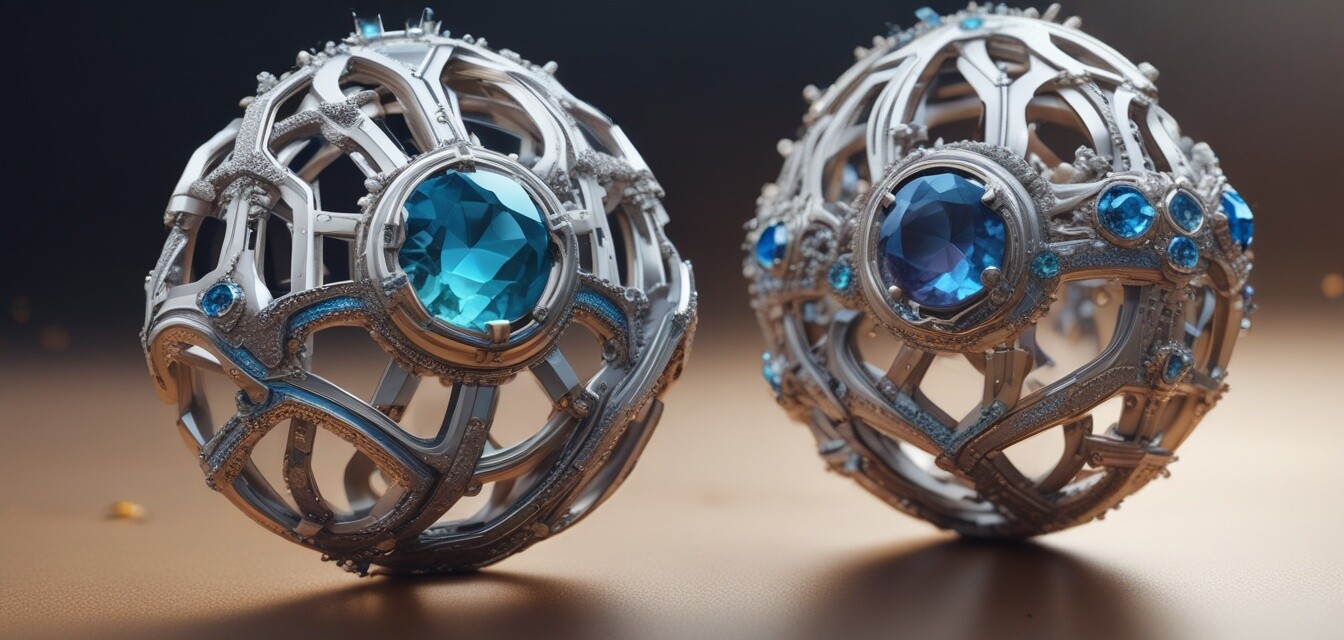
The Rise of Tech-Driven Jewelry Innovations
Key Takeaways
- Technology is revolutionizing jewelry design through methods like 3D printing.
- Sustainable materials are gaining popularity in the jewelry industry.
- Innovative design software allows for personalized jewelry creation.
- Jewelry brands are embracing transparency to address consumer demand for ethically sourced products.
The jewelry industry has always been a fascinating blend of art and craftsmanship, but recent advancements in technology are transforming the way jewelry is designed, created, and marketed. From 3D printing technologies to the use of sustainable materials, innovations are paving the way for a new era in jewelry making. In this article, we’ll explore how these tech-driven innovations are changing the landscape, highlighting their impact on the industry, designers, and consumers alike.
The Impact of Technology on Jewelry Design
One of the most notable changes in the jewelry industry has been the introduction of digital tools and technologies that enhance both design and production processes. Here are some significant influences:
1. 3D Printing
3D printing has emerged as a game-changer in jewelry design, allowing artisans to create intricate pieces with precision. The benefits include:
- Complex designs: 3D printing makes it possible to achieve elaborate designs that would be difficult to produce by hand.
- Customization: Customers can now personalize their jewelry designs, leading to unique expressions of individuality.
- Reduced waste: This technology minimizes material waste, aligning with eco-conscious initiatives.
2. Sustainable Materials
With growing awareness of environmental issues, sustainable materials are becoming increasingly popular. Some key examples include:
| Material | Description | Benefits |
|---|---|---|
| Recycled metals | Using previously used metals to create new pieces. | Reduces mining impacts and conserves resources. |
| Lab-grown gemstones | Stones created in controlled environments, mimicking natural processes. | Ethical and environmentally friendly alternative to mined stones. |
| Biodegradable materials | Materials that can decompose naturally. | Minimizes landfill impact and promotes sustainability. |
Software Innovations in Jewelry Design
The development of software tools has also revolutionized the jewelry design process. Some key advancements include:
- CAD Software: Computer-aided design (CAD) enables designers to create intricate 3D models efficiently.
- Virtual Reality (VR) and Augmented Reality (AR): These technologies provide customers with immersive experiences, allowing them to visualize jewelry before purchase.
- Parametric Design Tools: These tools enable designers to experiment with variables, creating dynamic designs tailored to customer preferences.
Ethical Sourcing and Transparency
As consumers become more conscientious about their purchasing decisions, brands are responding by emphasizing ethical sourcing practices. This shift involves:
- Traceability: Brands are providing transparency about their supply chains, enabling consumers to know the origin of their jewelry.
- Ethical certifications: Many companies are seeking certifications that validate their commitment to sustainable and ethical materials.
Market Trends Driven by Technology
Technology's influence on jewelry is evident in the emerging market trends. Here are some key trends to consider:
| Trend | Description |
|---|---|
| Personalization | Consumers are looking for unique and tailored options that reflect their personal style. |
| Transparency in sourcing | Shoppers demand accountability around the origins of materials and the ethics behind production methods. |
| Sustainability | With a growing emphasis on eco-friendly materials, sustainable practices are becoming the norm. |
| Tech integration | From online customization tools to immersive shopping experiences, technology is shaping how consumers interact with jewelry brands. |
Conclusion
The rise of tech-driven jewelry innovations marks a significant turning point in the industry. As artisans embrace new technologies, they are not only enhancing their design capabilities but also addressing consumer demand for sustainable and ethical practices. The evolution of jewelry design is an ongoing journey, and it’s exciting to see how technology, sustainability, and creativity will continue to shape this vibrant industry.
Pros
- Increased design possibilities and customization options.
- Minimized environmental impact through sustainable practices.
- Enhanced consumer engagement through immersive technology experiences.
Cons
- High initial costs for technology integration.
- Possible disconnect between traditional craftsmanship and new technology.
For more insights into the latest trends in ethical jewelry, explore our News and Trends section and learn about the evolution of sustainable practices in the industry.
Interested in expanding your jewelry collection with eco-conscious choices? Check out our selection of Eco-Conscious Jewelry Sets or explore our Ethical Stone Earrings.